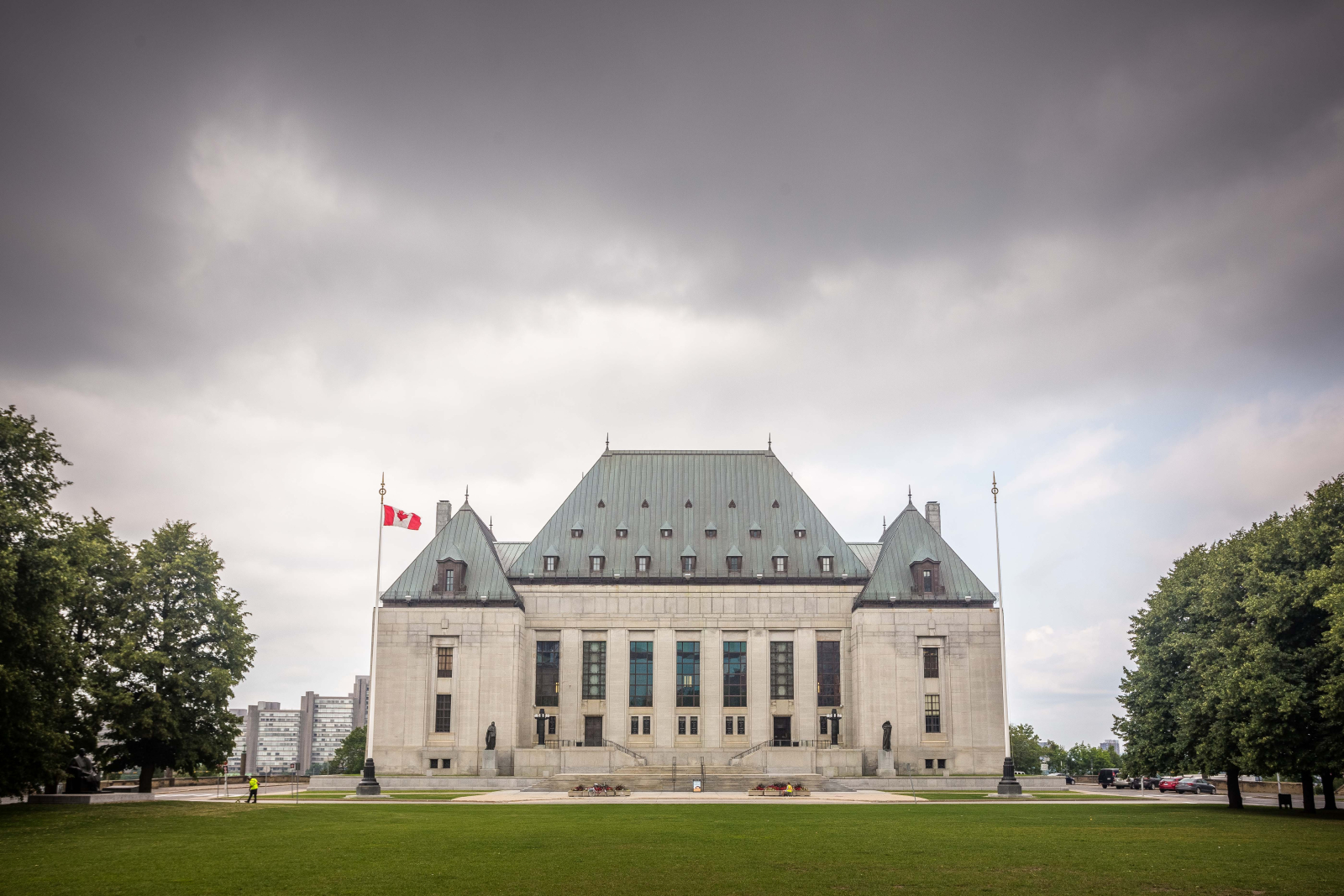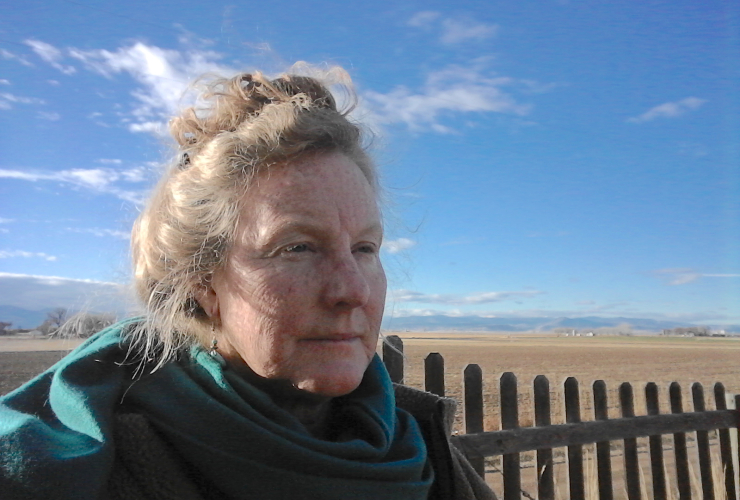The Inuit Hamlet of Clyde River won a nearly six-year-long battle Wednesday to stop seismic testing in the Arctic that could kill or maim the marine mammals upon which they rely for food and jobs.
The Supreme Court unanimously ruled the National Energy Board failed miserably at properly consulting Inuit and didn't adequately assess the impact on treaty and Indigenous rights of the proposed oil and gas exploration project before approving it in 2014.
The court quashed the NEB's approval, meaning the testing cannot proceed.
In a separate but related decision, the court upheld the approval granted to Enbridge to reverse the flow and increase capacity of its Line 9 pipeline between Ontario and Quebec.
In that case, also a unanimous decision, the court found the NEB properly consulted the Chippewas of the Thames First Nation in southwestern Ontario.
In both cases, the court upheld that the NEB is capable and allowed to fulfil the Crown's duty to consult Indigenous groups about development projects in their traditional territories, as long as that consultation is robust.
"What an exciting day for us," said Jerry Natanine, the former mayor of Clyde River. "We've been saying justice is on our side because we're fighting for our life, we're fighting for our way of life."
Natanine clutched an eagle feather as he spoke in soft tones of the years-long battle that pitted his tiny, remote hamlet of about 1,100 people against three Norwegian companies seeking to fire air guns into the waters of Baffin Bay and Davis Straight looking for oil.
"We are not totally against development, but it has to be done right," Natanine said. "You know whales don't have to die, seals don't have to die off, or plankton. There's a better way to do these things."

Prime Minister Justin Trudeau said the government respects the Supreme Court and takes the judgements very seriously.
"For these two specific decisions, obviously we will study them, but what they underline is that Aboriginal communities need to be adequately consulted, have to be partners and be implicated in decisions," he said at an event in Quebec. "And that's what I've been saying for two years and that's what we are working on."
A spokeswoman for the NEB said the agency is reviewing the court decision.
Vancouver lawyer and Indigenous legal expert Tom Isaac said the decisions are a good day for Canada because the courts have outlined in some very specific ways what did and didn't qualify as acceptable consultation.
"There isn't a grey cloud of legal uncertainty over Canada on the duty to consult," said Isaac. "They have filled in the blanks on what good consultation looks like and what bad consultation looks like."
He said the decisions in a way form a blueprint for future development reviews and decisions, said Isaac.
The difference between the two decisions largely stemmed from the fact that in the Clyde River case the NEB looked at the environmental impacts of the testing, but didn't specifically look at or address the impact on treaty rights.
The court said the Inuit had well-established treaty rights in the region, including the right to harvest marine mammals. It was also undisputed that the seismic testing could harm mammals like whales and seals, damaging their hearing, affecting their migration routes and even killing them.
That assessment meant the Crown's duty to consult was "at the highest end of the spectrum," but the consultations "fell short in several respects," the court found.
The NEB didn't hold oral hearings, didn't provide funding to help the Inuit communities participate in the review process and relied on scientific information from the companies that was delivered in a format the Inuit couldn't access.
"To put it mildly, furnishing answers to questions that went to the heart of the treaty rights at stake in the form of a practically inaccessible document dump months after the questions were initially asked in person is not true consultation," the court wrote.
In the Chippewas case, the court found the NEB consultation process was proper, included adequate opportunity and funding for the Chippewas to participate and specifically addressed the impact on treaty rights.
The NEB found the project posed some risk to the Chippewas territory, but those risks could be mitigated. As well, Enbridge didn't need any new land rights, most work would take place in existing facilities and use its existing right of way.
A Chippewas spokesperson hasn't yet been available to comment.
Natanine said he was sad the Chippewas of the Thames were not successful in stopping the Enbridge pipeline expansion in their territory, even going so far as to wear a T-shirt with the words "Chippewas Solidarity" printed on the front.
The court issued a stern warning that the consultation process on Indigenous rights has to occur before projects are approved rather than after courts force it to happen.
"True reconciliation is rarely, if ever, achieved in courtrooms," the judgement said.
The rulings released
The rulings released yesterday demonstrate what happens to our Supreme Court, when fossil fuel interests are yanking puppet strings in the hallowed halls of justice.
The SCC ruled the NEB can consult for the Crown in both rulings, but clearly didn't in one. A 50% failure rate, yet, our top justices are confident the NEB is capable of handling their responsibilities to consult.
Was it not scripted and predetermined that these rulings were chosen for appeal, ruled on unanimously and released on the same day, with such media attention? These represent two distinct cases of consultation by the NEB, however, the outcome for both remains the same, the SCC has set precedent for the right of the NEB to consult for the Crown. This was no victory for anyone but oil and gas interests and colluded regulators, across the nation.
It is plain and obvious that the NEB failed in Clyde, so the SCC killed the approval for an obscure Norwegian consortium for seismic testing, that was not going to occur anyway. In December of 2016, the Feds implemented a 5 year ban on oil and gas exploration operations in the Arctic, and depressed commodity pricing have ensured Arctic operations remain fiscally impossible. This token ruling has served only one purpose, to make the SCC look balanced and fair in their approach to First Nations concerns regarding consultation by the NEB, while not stepping on any Big Oil toes.
Of course, with the other ruling, Enbridge and the NEB, changed their spots, (it is Southern Ontario after all and not the far, excluded North) consulted appropriately and this approval holds. And it's a wash for our soiled SCC. I see intention and playing favourites, anyone else?
If you have ever had the harrowing and humiliating experience of dealing with the NEB or the AER for oil and gas applications and approvals, there is one key element that has been missing from all the reporting and rulings, the term and notion of "directly affected." Both regulators use this elusive and undefined term to categorize those that can file statements of concern or intervene in projects, yet, there is no definition or parameters for those that are directly affected. It's completely arbitrary and in the case of the AER, you will be hard pressed to find any person in Alberta in which the AER deems directly affected, by any oil and gas operation.
In the event that regulators, more so the NEB, confer that a party is affected, they then revert to a risk based system of rationalizing approvals. You may be affected, but to a small degree or under an acceptable level of risk, therefore, you are not entitled to be an obstacle to approval. And to be candid, that is all that you are, an snag in the seamless art of rubber-stamping.
It's nauseating that our Supreme Court lacks the intelligence and integrity to hold the NEB to account and has failed Canadians by armouring the NEB with these optical illusion rulings. Justice has been bought and paid for again. In light of this masquerade, one should be concerned for the litany of other cases regarding NEB approvals before the SCC.





Comments